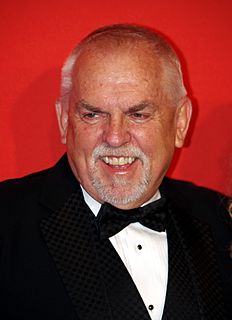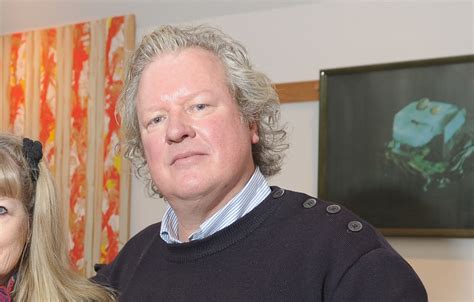A Quote by Kazuo Ishiguro
What he wanted was not just to hear about Hailsham, but to remember Hailsham, just like it had been his own childhood. He knew he was close to completing and so that's what he was doing: getting me to describe things to him, so they'd really sink in, so that maybe during those sleepless nights, with the drugs and the paint and the exhaustion, the line would blur between what were my memories and what were his.
Related Quotes
[Shoji] Hamada's [drawings] were little one-line notations of something he wanted to remember about a pot or a piece of furniture or a landscape or something like that, and they were just done very quickly and they had, he thought, no artistic quality. They're not great drawings, but they served to remind him of something he had in his mind, so that when he then went to the studio, that would stick in his mind and he could explore the making of the pot with the clay on the wheel.
Remember when you got into the word and it wasn’t because you had a sermon to prepare or you needed to learn some things or there were some doctrinal problems or you knew that to progress as a useful servant you had to continue on in the things of the word of God? Do you remember when you just got into the word because you wanted to hear something from God? You wanted to know something about Him. Do you remember when you just prayed because of Him? Is your heart burning for Him?
I do remember, one time, a man came to me after the students began to work in Mississippi and he said the white people were getting tired and they were getting tense and anything might happen. Well, I asked him "how long he thinks we had been getting tired"? I have been tired for 46 years and my parents was tired before me and their parents were tired, and I have always wanted to do something that would help some of the things I would see going on among Negroes that I didn't like and I don't like now.
A canteen I remember vividly, and maybe one other thing, I can't remember. And I knew then that he had bought them in an army surplus store that day and he wanted to maybe enhance himself in my eyes, and say, "Well, yes, I have been in the army." Or [he] simply just didn't want to disappoint me. It could have been one or the other. But I knew that he had lied to me. And this filled me with a tremendous sort of anger towards him. At the same time, knowing he was trying to please me, so feeling good about him.
I have a lot of special memories with my parents but my toughest one is, I had, as a teenager, a pretty insatiable appetite for beer. The first time I got drunk my father found me throwing up in the bathroom. I was 15, maybe 16, and the disappointment in his voice, I can hear it to this day, and the sorrow that that brought to him. He just felt like a failure as a father, and Id give anything to take that day back because that was so hard on him. In time, my life got better, and his did too, but that was really memorable, one of those memories Id like to forget.
I just read about John Le Carre, the great spy novelist. He had an absolutely miserable childhood. His mother deserted him when he was young. His father was a playboy and a drunk. He was shifted around to many different homes. He knew he was a writer when he was about nine, but he was dyslexic. So here was a person with an absolutely messed-up childhood and a symptom that prevented him from doing what he wanted to do most. Yet that very symptom was part of the calling. It forced him to go deeper.
I wanted to walk over there. I wanted to curl up beside him, lean against him, talk to him. I wanted to know what he was thinking. I wanted to tell him everything would be okay. And I wanted him to tell me the same thing. I didn't care if it was true or not- I just wanted to say it. To hear it, to feel his arms around me, hear the rumble of his words, that deep chuckle that made me pulse race
For my own children, I do want for them to look back and remember that it was me in the kitchen, that I was doing the packed lunches, that we were there on the school run, that we did take a bus. I want them to remember those things, because those are the things that I remember from my own childhood and that have been incredibly important to me.
One of the high points in my career came from a time I had with Tim Conway on a film when I had him fall down with laughter. I had this scene with him where I was this mechanic down fixing his car. I can't remember what my line was as written, but they were okay with me doing a made-up line. So Tim asks me what's wrong with his car, and I look up and say, "Well, looks like you got a squirrel caught up in there."
Someone asked me if I would like to write a man on death row, be a pen pal, and I was like, sure. I volunteered. I had been in a place in my life - a relationship had ended; my parents were getting elderly - I was kind of adrift. The name that was given to me, just randomly, was Todd Willingham. And he wrote me a letter, and in this letter, he thanked me for writing him and [said that] if I would like to visit, he would put me on his visitor list... I was just really struck by the letter from Todd. It was very polite; it was very kind.
When I was a kid growing up in Kentucky, on lucky summer nights, my cousin would pick me up in his Chevy Super Sport and drive me down along the Ohio River to Cincinnati to hear some rock 'n' roll. Those were exciting times, and the bands would play late into the night, rocking soaked in sweat. When I hear the Ready Stance, these memories come back to me and I remember that Cincinnati has produced so many wonderful musicians. The Ready Stance is among that number. You will be hearing a lot about them in the future.
That’s how Ptolemy imagined the disposition of his memories, his thoughts: they were still his, still in the range of his thinking, but they were, many and most of them, locked on the other side a closed door that he’s lost the key for. So his memory became like secrets held away from his own mind. But these secrets were noisy things; they babbled and muttered behind the door, and so if he listened closely he might catch a snatch of something he once knew well.
There were times when it appeared to Dorian Gray that the whole of history was merely the record of his own life, not as he had lived it in act and circumstand, but as his imagination had created it for him, as it had been in his brain and in his passions. He felt that he had known them all, those strange terrible figures that had passed across the stage of the world and made sin so marvellous, and evil so full of subtlety. It seemed to him that in some mysterious way their lives had been his own.
I would go with my husband to the tailors where he gets his shirts made, and I would watch the bespoke process. I would ask them, "Would you be able to make that for me?" And they would always say, "Well, yes, but no." They were very French about it. I decided I would just do it for myself. And I started doing that. Then other people would notice, and want it. So I started doing things for friends, little pieces, and my own line grew that way.
I once had a young musician come to me and say that he wanted to be a professional musician. I asked him to write his list. When he came back to me, the three things in his life he most wanted were: to be paid for his music; to travel around the world; to meet new people. We came to the decision, after thinking really creatively, that if he got a job on a cruise ship, he would fulfill those goals.







































